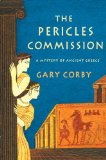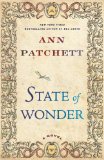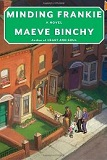 Jane Eyre
Jane Eyre
by Charlotte Bronte
Signet Classic, 1982. 461 pages. First published in 1846.
Starred Review
This is not going to be a standard review. It turns out I already did a review of Jane Eyre back in 2001, when I was first writing Sonderbooks. If you haven’t read Jane Eyre, Dear Reader, stop reading these spoiler-filled musings and go read the book! It’s a classic! You really should read it!
I listed Jane Eyre on my list of about ten favorite books when I was a Freshman in college. I loved it wholeheartedly — the romance, the melodrama, the true love, the clever and conscientious but plain heroine. I’m still a romantic, and I still loved the story, but I found my perspective at 47 quite different than when I first read it around 15.
In the first place, I hadn’t remembered that the book is a thoroughly Christian one. There are multiple obscure Biblical allusions, over and over again. Now, I understood the allusions, but I’m definitely not used to seeing them in a book that’s for the general public. It made me wonder how much readers miss, reading it today. For example, “A frequent interlude of these performances was the enactment of the part of Eutychus by some half dozen of little girls; who, overpowered with sleep, would fall down, if not out of the third loft, yet off the fourth form, and be taken up half dead.” (Eutychus fell asleep when Paul preached a long sermon and fell from the third loft, but was then restored.)
But mostly I found myself awfully cynical over the romance! Mr. Rochester is just plain mean when he works at making Jane jealous. She could have done much, much better with half a chance of meeting more people! Mostly, I now have a hard time thinking anything at all good about a married almost-40-year-old man who falls in love with a 19-year-old! Right, they’ll have a lot in common! Sure, she’s the only one who’s ever really understood him! I have a much, much harder time believing that than I did when I was a teenager. Rather than find Mr. Rochester romantic, this time I thought him making a fool of himself, and not even being very nice while he was at it.
Mind you, I do like Jane and the way she deals with him as he manipulates her. I don’t blame her for falling in love with him, but if she’d seen more of the world, I hope she would have realized how much better she could have done. (I read a book once that said the reason so many middle-aged men have affairs with much younger women is that those are the only ones stupid enough to fall for the line, “My wife doesn’t understand me.”) This guy was twice her age and besides being married, had had three different mistresses. He doesn’t deserve you, Jane!
What’s more, I found myself wondering if the insane wife was actually insane before she got locked in the attic for years and years. Mr. Rochester explains to Jane that soon after the wedding, he hated his wife, even before she went mad — as if that makes it okay. He tries to portray himself as so compassionate for “keeping” her locked up in the attic with a jailer and pretending she doesn’t exist. I still wonder: How insane was she before she got locked up?
Okay, but Jane completely wins me over in the second half. How incredibly refreshing to see someone decide she would rather die than be a mistress! Yes, she’s truly tempted, horribly tempted. But she follows her principles. Mr. Rochester tells her about his mistresses:
“It was a grovelling fashion of existence: I should never like to return to it. Hiring a mistress is the next worst thing to buying a slave: both are often by nature, and always by position, inferior: and to live familiarly with inferiors is degrading. I now hate the recollection of the time I passed with Celine, Giacinta, and Clara.”
Jane wisely reflects:
“I felt the truth of these words; and I drew from them the certain inference, that if I were so far to forget myself and all the teaching that had ever been instilled into me, as — under any pretext — with any justification — through any temptation — to become the successor of these poor girls, he would one day regard me with the same feeling which now in his mind desecrated their memory. I did not give utterance to this conviction: it was enough to feel it. I impressed it on my heart, that it might remain there to serve me as aid in the time of trial.”
But where Jane fully won my admiration and my heart was after she asked herself who would be hurt by her becoming Mr. Rochester’s mistress. “Who in the world cares for you? or who will be injured by what you do?” Her answer made me cheer:
“I care for myself. The more solitary, the more friendless, the more unsustained I am, the more I will respect myself. I will keep the law given by God; sanctioned by man. I will hold to the principles received by me when I was sane, and not mad — as I am now. Laws and principles are not for the times when there is no temptation: they are for such moments as this, when body and soul rise in mutiny against their rigour; stringent are they; inviolate they shall be. If at my individual convenience I might break them, what would be their worth? They have a worth — so I have always believed; and if I cannot believe it now, it is because I am insane — quite insane: with my veins running fire, and my heart beating faster than I can count its throbs. Preconceived opinions, foregone determinations, are all I have at this hour to stand by: there I plant my foot.”
You go, Jane!
Now, part of my enthusiasm for Jane was reflecting that if young women today had half the principles of Jane Eyre, and refused to have affairs with married men, how many, many lives would not be torn apart! If more people let principles rein in their passions, I persist in thinking that many less hearts would be broken, including mine.
However, by this time I was loving Jane and rooting for Jane, so no matter how dissimilar our situations, now I saw myself in her. I, too, felt torn away from the one I had thought was the love of my life. Okay, so he left me, and didn’t want me around. Leaving wasn’t my choice — though the decision to stop begging him to come back seemed almost as difficult as Jane’s decision to tear herself away. The fact is, I had never stopped loving him, and when he moved to the other side of the world, I felt like my heart was being torn out of my chest. How could I fault Jane for loving Mr. Rochester when I still love my husband? I could easily understand Jane’s despairing wanderings. I took great comfort in Jane’s realization that was the same as I had come to — that there was nothing she could do to help the man she loved with all her heart. She would have to entrust him to God’s care.
“Worn out with this torture of thought, I rose to my knees. Night was come, and her planets were risen: a safe, still night; too serene for the companionship of fear. We know that God is everywhere; but certainly we feel His presence most when His works are on the grandest scale spread before us: and it is in the unclouded night-sky, where His worlds wheel their silent course, that we read clearest His infinitude, His omnipotence, His omnipresence. I had risen to my knees to pray for Mr. Rochester. Looking up, I, with tear-dimmed eyes, saw the mighty Milky-way. Remembering what it was — what countless systems there swept space like a soft trace of light — I felt the might and strength of God. Sure was I of His efficiency to save what He had made: convinced I grew that neither earth should perish, nor one of the souls it treasured. I turned my prayer to thanksgiving: the Source of Life was also the Saviour of spirits. Mr. Rochester was safe: he was God’s and by God would he be guarded. I again nestled to the breast of the hill; and ere long, in sleep, forgot sorrow.”
Later, I again found myself cheering for Jane when she grew busy and happy teaching school. However, I fully believed that she would have dreams, over and over again, about the one she loved — no matter how serene her day to day life, no matter how admirable her accomplishments.
And then I related to her next temptation. I thought Charlotte Bronte was brilliant that this was the next thing Jane faced: Her temptation was to give her life being a really really good Christian. She could devote herself to Christian service, and she would be good at it. But service without heart. St. John’s proposal was a true temptation. But because Jane had known real love, she could not settle for a mockery of marriage. No matter how dressed up it would be in piety, her heart sensed that it would be wrong, that love itself is sacred.
I’m not sure if I’m explaining why I related to this. I guess there’s a side of me that also thinks I can hide my pain in Christian service. Yes, God is enough. Yes, my relationship with God is incredibly comforting me. But if I keep my heart out of it, even that service will be worthless. As it says in I Corinthians 13, “If I give all I possess to feed the poor and deliver my body to the flames, but have not love, I am nothing.”
So, by the end of the book, I’m loving Jane, rooting for Jane, and relating to Jane. I’m still a romantic, so I love the part where Jane asks God for direction, and in answer she can hear Mr. Rochester’s voice across hundreds of miles. By this time, I don’t begrudge Jane her happy ending, no matter how contrived. Honestly, with Mr. Rochester crippled and blinded, the relationship seems a bit more equal. Though I do wish Jane would stop calling him “my master”!
Anyway, 30 years ago when I read Jane Eyre, I thought it a beautiful story of true love persevering despite all obstacles. I think that today I see it as a beautiful story of a young woman with true character and true faith and genuine love and forgiveness in her heart.
And a rousing read, no doubt about it!
Buy from Amazon.com
Find this review on Sonderbooks at: www.sonderbooks.com/Fiction/jane_eyre.html
Disclosure: I am an Amazon Affiliate, and will earn a small percentage if you order a book on Amazon after clicking through from my site.
Source: This review is based on my own long-owned paperback copy.
 The decisions in ranking were still difficult, though. Two books I read seemed resoundingly, lastingly good, and it’s hard to rank them. The Name of the Wind, by Patrick Rothfuss, is written in lyrical prose and immediately pulls you in. It’s an epic that you can compare to Tolkien with a straight face. However, when I read the sequel, The Wise Man’s Fear, although it is still incredibly well-written, I did get annoyed that the story just stopped at a random place and definitely isn’t finished. I also suffered some excessive eye-rolling at the interlude involving the character learning about sex from a woman of faery whose beauty drives ordinary men mad. Though I have to admit, even that part was written expertly and compellingly.
The decisions in ranking were still difficult, though. Two books I read seemed resoundingly, lastingly good, and it’s hard to rank them. The Name of the Wind, by Patrick Rothfuss, is written in lyrical prose and immediately pulls you in. It’s an epic that you can compare to Tolkien with a straight face. However, when I read the sequel, The Wise Man’s Fear, although it is still incredibly well-written, I did get annoyed that the story just stopped at a random place and definitely isn’t finished. I also suffered some excessive eye-rolling at the interlude involving the character learning about sex from a woman of faery whose beauty drives ordinary men mad. Though I have to admit, even that part was written expertly and compellingly. However, another series I read completely captivated me. Even though I would probably give Patrick Rothfuss the prize for outstanding work of fantasy literature (assuming that when he finishes up, he keeps up the quality), with Sonderbooks Standouts, I’m rating how much I enjoyed reading them. So I have to give my first place honor to Daughter of the Forest, by Juliet Marillier. Like so many of my favorites, it was a fairy tale retelling, and was so incredibly well done, weaving in Irish History and seeming totally realistic.
However, another series I read completely captivated me. Even though I would probably give Patrick Rothfuss the prize for outstanding work of fantasy literature (assuming that when he finishes up, he keeps up the quality), with Sonderbooks Standouts, I’m rating how much I enjoyed reading them. So I have to give my first place honor to Daughter of the Forest, by Juliet Marillier. Like so many of my favorites, it was a fairy tale retelling, and was so incredibly well done, weaving in Irish History and seeming totally realistic.







